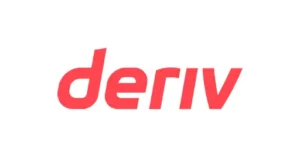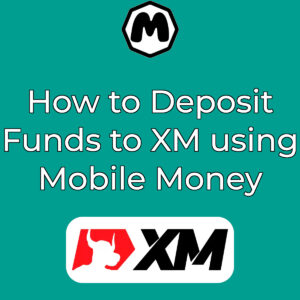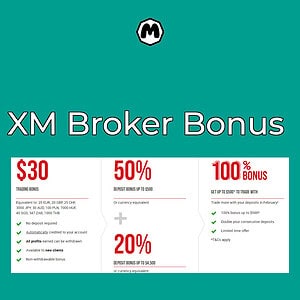Being broke in ‘Zambia’ as a country we understand but being broke when you can make money trading that we do not understand.
With that said here are the Best Forex Brokers for Zambians so that you can start trading ASAP.:
Here are the Best Forex Brokers Accepting Mobile Money in Zambia.
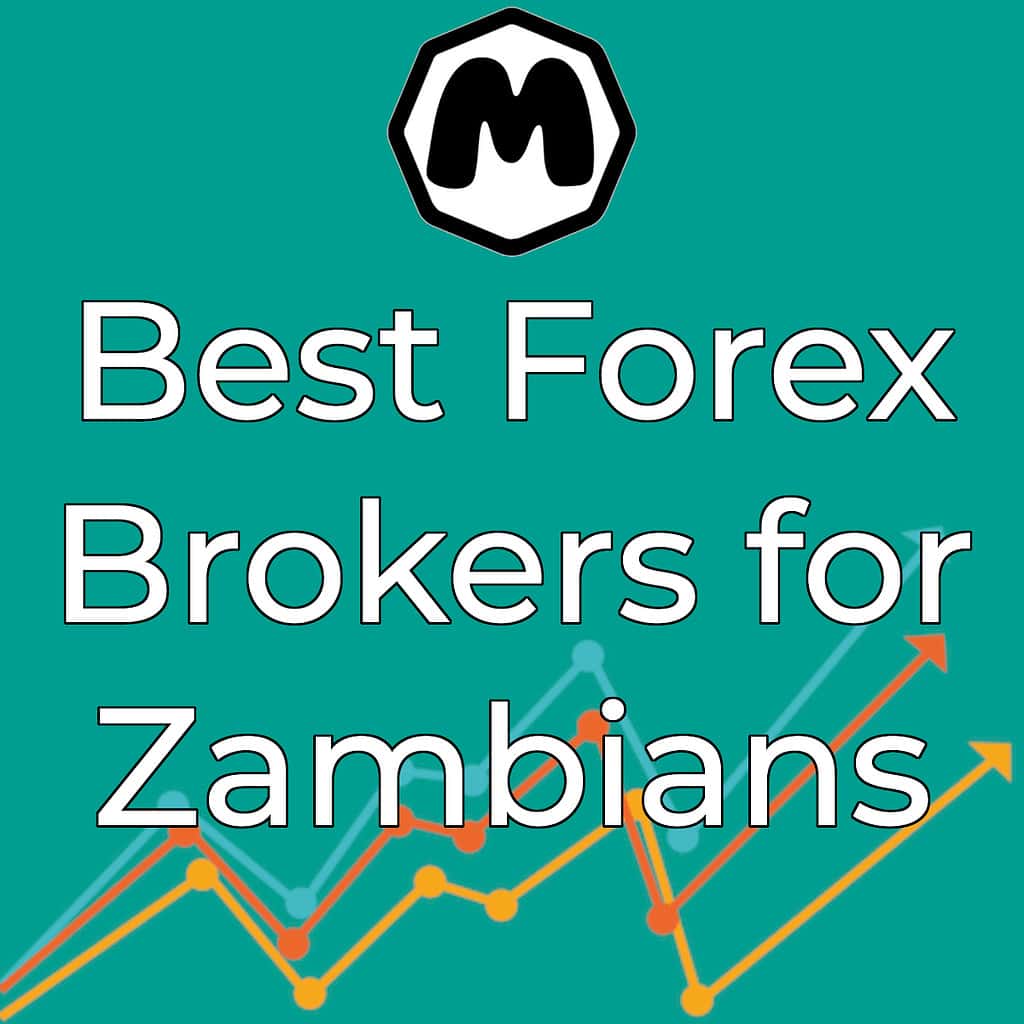
Affiliate Disclosure!
We’re reader-supported. We collaborate with exceptional companies providing products that assist our readers in reaching their goals! When you make a purchase through our partner links, we receive a referral fee at no extra cost to you. For further details, please visit the Affiliate Links section on our Disclaimer page.
What is Forex Trading?
Forex trading, also known as foreign exchange trading or FX trading, involves buying and selling currencies with the aim of profiting from fluctuations in their exchange rates.
Currencies are always traded in pairs, such as the US dollar (USD) and the Euro (EUR).
The exchange rate between two currencies tells you how much of one currency you need to buy one unit of the other currency.
Here’s a breakdown of the key concepts:
- Currencies: You’re essentially speculating on the relative value of one currency against another.
- Exchange Rates: These rates are constantly changing based on various factors like interest rates, economic performance, and global events.
- Buying and Selling: You can profit by buying a currency pair that you believe will appreciate in value and selling it later at a higher price. Conversely, you can also profit by selling a currency pair you believe will depreciate and then repurchasing it later at a lower price.
Here are some additional points to consider:
- Forex Leverage: This allows you to control a larger position in the market with a smaller amount of capital. It can magnify your profits, but also magnify your losses. (We’ll discuss leverage in more detail later)
- Margin Forex Trading: When using leverage, you only need to put up a deposit (margin) to control a larger position. The broker lends you the remaining capital.
- Spread Forex Trading: The spread is the difference between the bid price (the price at which a broker will buy a currency pair from you) and the ask price (the price at which they will sell it to you). This is how brokers make money on your trades.
Forex trading platforms offered by brokers provide the tools you need to analyze currency markets, execute trades, and manage your positions. There are platforms specifically designed for beginners, while others offer advanced features for experienced traders.
Forex brokers for beginners can provide valuable educational resources and account features that cater to new traders, such as demo accounts that allow you to practice with virtual money before risking real capital.
What are the Best Forex Brokers for Zambians?
Before the list of the Best Forex Brokers for Zambians you must understand What is a Forex Broker and what do they do?
Forex brokers act as intermediaries in the foreign exchange (forex) market, connecting traders like you to the vast network of currency buyers and sellers.
Imagine them as bridges between you and the fast-flowing river of international currency exchange.
Here’s a breakdown of their key roles:
- Market Access: The forex market isn’t a physical marketplace where individuals can directly buy and sell currencies. Forex brokers grant you entry, allowing you to trade a wide range of currency pairs (like USD/EUR or GBP/JPY).
- Trading Platform: They provide user-friendly platforms with features like real-time quotes, charting tools, and order execution functionalities. This is your digital hub for monitoring markets, analyzing trends, and placing trades.
- Leverage (optional): Many brokers offer leverage, which can magnify your potential profits (and losses) by allowing you to control a larger position in the market with a smaller amount of capital.
- Reduced Transaction Costs: Brokers compete to offer competitive spreads (the difference between the buy and sell price of a currency pair) and commissions (fees charged per trade). This helps keep your trading costs manageable.
- Regulation and Security: Reputable forex brokers are regulated by financial authorities, ensuring a level of security for your deposited funds and adherence to fair trading practices.
- Educational Resources: Many brokers provide educational resources like webinars, tutorials, and market analysis to help you improve your forex trading knowledge and skills.
- Demo Accounts: Most brokers offer demo accounts with virtual funds. This allows you to practice trading in a risk-free environment before committing real capital.
Overall, forex brokers are essential partners for anyone wanting to participate in the forex market. They provide the necessary tools, access, and support to navigate this dynamic financial landscape.
Here is a list of the Best Forex Brokers for Zambians:
1. XM
Best for Beginner traders (low minimum deposit, education) and Experienced traders (deposit bonuses)

MY TAKE
XM Group stands out as a MetaTrader-only broker, catering to the needs of Zambian traders with its exceptional offerings. Founded in 2009, XM Group has since garnered a reputation for providing a comprehensive trading experience coupled with an abundance of educational resources and research tools. With a minimum deposit requirement of just $5, XM Group ensures accessibility for traders of all levels, including beginners.
- Minimum Deposit: $5 (Micro, Standard, Ultra Low), $10,000 (Shares)
- Deposit Bonuses: Yes, 100% deposit bonus for up to $500
- Tradeable Symbols (Total): Thousands (forex, stocks, commodities, indices)
- Regulated by: CySEC, FCA, ASIC, IFSC
PROS
- Extensive Range of Tradeable Symbols: XM Group offers an impressive selection of 1,429 CFDs, encompassing 55 forex pairs. This diversity allows Zambian traders to access a wide array of trading opportunities across various financial markets.
- Robust Research and Educational Content: One of XM Group’s standout features is its rich repository of research and educational materials. From daily videos to podcasts and organized articles, XM Group provides traders with valuable insights and knowledge to enhance their trading skills.
- Best-in-Class Research Tools: Recognized for its exceptional research content, XM Group has been honored with Best in Class accolades for Research in the 2024 Annual Awards by ForexBrokers.com. Traders can benefit from in-depth market analysis, forecasts, and trading strategies, empowering them to make informed decisions.
- Comprehensive Educational Resources: XM Group goes the extra mile in supporting trader education, offering a diverse range of educational webinars, articles, and Tradepedia courses. Whether novice or experienced, Zambian traders can access valuable learning materials to enhance their trading proficiency.
- Full Suite of MetaTrader Platforms: As a MetaTrader-only broker, XM Group provides access to the full MetaTrader suite, including MetaTrader 4 and MetaTrader 5. Traders can leverage advanced charting tools, analytical features, and automated trading capabilities to execute their strategies efficiently.
- Guaranteed Fills and Trade Execution: XM Group offers peace of mind with guaranteed fills for market, stop-loss, and limit orders on trades up to 50 lots (equivalent to 5 million units of currency). This ensures that traders can execute their trades swiftly and reliably, even during volatile market conditions.
CONS
- Standard Account Spreads: Despite its strengths, XM Group falls short in terms of its standard account spreads, which are comparatively expensive when compared to some of the best forex brokers. Zambian traders may find themselves paying higher costs for trading activities.
- Limited Platform Offering: While XM Group provides access to the MetaTrader suite, it lacks proprietary trading platforms. This limitation may be a drawback for traders seeking alternative trading platforms with unique features and functionalities.
Join XM today and kickstart your trading experience with a generous $30 to trade with.
Yes, you read that right! $30 on the house, just for signing up and verify your account.
And here’s the best part: you get to keep all the profits you make!
Here is How to Open XM Demo & Real Account FAST.
2. Exness
Best for Beginners due to standard account with no minimum deposit.
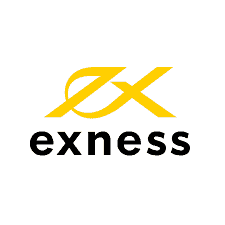
MY TAKE
Exness emerges as a leading tech-driven multi-asset broker, offering exceptional order and volume statistics alongside a user-friendly trading environment. Here's an in-depth look at the strengths and weaknesses of Exness for traders considering their options:
- Minimum Deposit: Depends on account type:
- Standard Accounts (Cent & Standard): No minimum deposit.
- Professional Accounts: $200.
- Deposit Bonuses: None
- Tradeable Symbols (Total): Hundreds (forex, metals, crypto, energies, stocks, indices).
- Regulated by CySEC, FCA, FSCA, MAS
PROS
- Transparent and Efficient Withdrawals:
- Exness ensures instant withdrawals, processed based on the payment system used, providing traders with a seamless experience when accessing their funds.
- The broker maintains a high level of transparency with financial audits conducted by Deloitte, a reputable Big Four accountancy firm.
- Multi-Regulated Broker:
- With regulatory oversight from multiple authorities including CySEC, FCA, FSA, and others, Exness offers traders peace of mind regarding the security of their investments.
- Comprehensive Customer Support:
- Exness provides 24/7 multi-lingual customer service, catering to traders globally and ensuring prompt assistance whenever needed.
- Competitive Trading Fees:
- Traders benefit from ultra-low trading fees, particularly through commission-based accounts, allowing for cost-effective trading strategies.
- Flexible Leverage Options:
- Exness offers dynamic leverage options, ranging from 1:2 to unlimited, depending on the trader’s jurisdiction and the asset being traded.
- Negative balance protection adds an extra layer of security, preventing traders from losing more than their deposits.
CONS
- Absence of Beginner Education:
- Exness lacks educational resources tailored for beginner traders, potentially limiting the support available for those new to the forex market.
3. Deriv
Best for experienced traders.
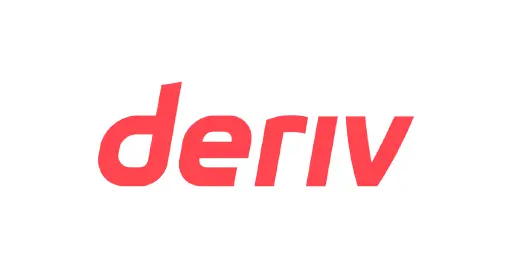
MY TAKE
Deriv is a reputable online trading platform with over 20 years of experience, offering various financial instruments including CFDs and derivatives on Forex, stocks, indices, cryptocurrencies, options, and commodities. Headquartered in Malta, it is regulated by multiple financial authorities such as the MFSA, LFSA, BVI FSC, and VFSC.
- Minimum Deposit: $10
- Deposit Bonuses: None
- Tradeable Symbols (Total): Hundreds
- Regulated by MFSA.
PROS
- Regulation: Deriv is regulated by multiple authorities, providing a secure trading environment.
- Range of Instruments: It offers a wide range of financial instruments for trading.
- Competitive Fees: Deriv provides commission-free trading with low fees.
- Customer Support: 24/7 customer support is available, though occasional delays in response times have been reported.
- Multiple Platforms: Deriv offers proprietary and third-party trading platforms with various trading tools.
- Educational Resources: Traders can access market news, educational videos, and articles through Deriv Academy.
CONS
- Regulatory Variations: Trading conditions and regulations may vary based on the entity.
- Risk of Binary Options: Trading Binary Options carries high risk and may not be suitable for all traders.
- Customer Support Delays: Some users have reported occasional delays in response times from customer support.
4. Fusion Markets
Best for low fees and no deposit charges.

MY TAKE
Deriv is a reputable online trading platform with over 20 years of experience, offering various financial instruments including CFDs and derivatives on Forex, stocks, indices, cryptocurrencies, options, and commodities. Headquartered in Malta, it is regulated by multiple financial authorities such as the MFSA, LFSA, BVI FSC, and VFSC.
- Minimum Deposit: $0 (zero)
- Deposit Bonuses: Fusion Markets doesn’t currently offer deposit bonuses (information can change, so check their website for updates).
- Tradeable Symbols (Total): Hundreds
- Regulated by: ASIC.
PROS
- Low Trading Fees: Fusion Markets prides itself on offering some of the lowest trading fees in the industry, making it an attractive option for traders looking to minimize their costs. With low forex and CFD fees, coupled with no inactivity or withdrawal fees, traders can execute their strategies without worrying about excessive charges eating into their profits.
- Fast and Easy Account Opening: One of Fusion Markets’ standout features is its user-friendly and fully digital account opening process. Traders can get started swiftly, with verification typically completed on the same day. This streamlined approach eliminates unnecessary hurdles, allowing traders to focus on what matters most—trading.
- Regulatory Compliance: Fusion Markets is regulated by top-tier authorities such as ASIC, providing traders with a sense of security and trust. The platform also offers negative balance protection for clients under ASIC, mitigating the risk of significant losses beyond their initial investment.
- Great Customer Service: Fusion Markets is renowned for its responsive and helpful customer service team. Whether traders have inquiries about account features, technical issues, or general trading questions, they can rely on Fusion Markets’ support staff to provide prompt assistance and guidance.
CONS
- Limited Product Selection: While Fusion Markets excels in providing a diverse range of currency pairs and some CFDs, it falls short in offering other popular asset classes such as real stocks, ETFs, and funds. Traders seeking a more comprehensive investment portfolio may find the selection lacking.
- No Investor Protection: Despite regulatory compliance and negative balance protection under ASIC, Fusion Markets does not provide investor protection. This omission may deter traders who prioritize the safety of their investments and seek additional safeguards against potential risks.
5. Tickmill
Best for low fees and ECN execution
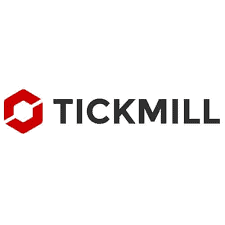
MY TAKE
Tickmill offers Zambian traders a comprehensive platform with competitive features and a range of trading options. Here's a breakdown of the strengths and weaknesses of Tickmill for traders in Zambia.
- Minimum Deposit: $100.
- Deposit Bonuses: Tickmill offers occasional deposit bonuses
- Tradeable Symbols (Total): Hundreds.
- Regulated by FCA, FSA.
PROS
- Regulatory Compliance: Founded in 2014, Tickmill operates under regulation in multiple Tier-1 and Tier-2 jurisdictions, providing Zambian traders with a secure and trustworthy trading environment.
- Competitive Pricing: Tickmill’s Raw account offers highly competitive pricing, recognized for #1 Commissions and Fees in 2024. With spreads as low as 0.0 pips, Zambian traders benefit from cost-effective trading.
- Wide Range of Platforms: Tickmill provides access to a comprehensive suite of trading platforms, including the full MetaTrader suite and additional options like CQG and AgenaTrader, catering to various trading preferences and strategies.
- Copy Trading and Automation: Zambian traders can leverage Tickmill’s copy trading offerings, including Tickmill Social and ZuluTrade, as well as automated trading via Capitalise and Signal Centre, enhancing flexibility and diversification.
CONS
- Limited Asset Selection: Despite recent expansions, Tickmill still offers a relatively limited range of tradable assets compared to industry leaders, potentially restricting diversification opportunities for Zambian traders with broader investment interests.
- Classic Account Limitations: Pricing for Tickmill’s Classic account may not be as competitive as the Raw account, with higher average spreads. Additionally, the removal of the VIP account option may disappoint active traders seeking deeper commission savings.
- Discontinued TradingView Platform: Tickmill’s decision to discontinue the TradingView platform for futures and options trading may inconvenience Zambian traders accustomed to its features, potentially affecting their trading experience.
6. Pepperstone
Best for Experienced traders who value low spreads, a large range of tradable assets, and advanced platforms.

MY TAKE
Pepperstone, a reputable broker offering a range of tradeable markets and robust research tools, is an option worth considering for Zambian traders. Here’s a closer look at its features:
- Minimum Deposit: $200.
- Deposit Bonuses: None
- Tradeable Symbols (Total): Thousands.
- Regulated by ASIC, FCA.
PROS
- Regulatory Compliance: Founded in 2010, Pepperstone is regulated in three Tier-1 jurisdictions, two Tier-2 jurisdictions, and two Tier-4 jurisdictions, providing Zambian traders with a secure trading environment.
- Award-Winning Platforms: Pepperstone offers a selection of platforms including TradingView, cTrader, and MetaTrader, catering to various trading preferences. Its integration with third-party tools enhances the trading experience.
- Competitive Pricing: With a minimum deposit of $200, Pepperstone offers competitive pricing on its Razor account, particularly suitable for active traders.
- Research and Analysis: Pepperstone provides good-quality research tools, including daily market analysis articles, streaming news headlines, and access to third-party tools like Autochartist for pattern recognition.
CONS
- Educational Materials: While Pepperstone offers educational content such as trading guides and webinars, it lacks interactive courses and progress tracking, which may be a drawback for some Zambian traders seeking comprehensive learning resources.
Key Factors to Consider When Choosing a Forex Broker
Choosing the right forex broker is crucial for your trading success. Here are some key factors to consider:
1. Regulation and Licensing
Importance of regulation and security: This is paramount. Ensure your chosen broker is regulated by a reputable financial authority, such as the FCA in the UK, CySEC in Europe, or the CFTC in the US. Regulation helps protect your funds and ensures the broker adheres to fair trading practices. Forex brokers for beginners should prioritize this factor, as it minimizes the risk of encountering fraudulent brokers.
2. Trading Platforms
Overview of different trading platforms: Brokers offer various trading platforms, each with its own features and functionalities. Here’s a brief breakdown:
- Web-based platforms: Accessible from any device with a web browser, offering convenience and ease of use.
- Desktop platforms: Downloadable software offering more advanced features and customization options compared to web platforms.
- Mobile trading apps: Allow you to trade on the go, ideal for active traders who want to monitor positions and react to market movements in real-time.
Consider your needs and preferences when choosing a platform. Forex brokers demo accounts often come with the same platform you’ll use for live trading, so you can explore its functionalities before committing real capital.
3. Spreads and Commissions
Discussion on costs associated with trading: Transaction costs can significantly impact your profits. Here’s a breakdown of the two main pricing structures:
- Spread forex trading: The spread is the difference between the bid (buy) and ask (sell) price of a currency pair. This is the most common pricing structure, and brokers make their money from the spread. Look for brokers with tight spreads for your preferred currency pairs.
- Commission forex trading: Brokers charge a fixed commission fee per trade, along with a tighter spread. This can be more cost-effective for high-volume traders.
Consider your trading style and frequency when evaluating these structures. Forex leverage can also magnify your trading costs. Remember, while it increases your potential profits, it also amplifies potential losses.
4. Leverage and Margin Requirements
Explanation of leverage and margin: Leverage allows you to control a larger position in the market with a smaller amount of capital (margin). For example, with 100:1 leverage, a $100 deposit would allow you to control a $10,000 position. This can magnify profits, but also magnify losses. Margin forex trading involves using leverage. ECN forex trading brokers may offer slightly lower leverage due to the nature of their execution model.
5. Market Instruments Offered
Types of financial instruments available for trading: Not all brokers offer the same instruments. Forex brokers for beginners may want to start with a broker offering major currency pairs. More experienced traders may seek brokers offering a wider range of instruments, such as:
- Minor currency pairs
- Commodities (gold, oil, etc.)
- Indices (stock market indexes)
- Cryptocurrencies
- CFDs (contracts for difference)
6. Customer Support
Importance of quality customer service: Responsive and knowledgeable customer support is essential, especially for beginners. Look for brokers offering 24/7 multilingual support via phone, email, and live chat. Forex brokers regulation often dictates a minimum level of customer support a broker must provide. Forex brokers demo accounts often allow you to test the quality of customer support before opening a live account.
7. Account Types
Overview of different account types: Many brokers offer various account types tailored to different experience levels and trading capital. Here are some common examples:
- Standard accounts: Suitable for beginners, offering basic features and lower minimum deposits. Islamic forex accounts are a type of standard account that complies with Islamic religious principles.
- Micro accounts: Ideal for those starting with very small capital.
- VIP/Premium accounts: Cater to experienced traders with higher minimum deposits, offering advanced features, lower spreads, and dedicated account managers.
8. Educational Resources
Importance of educational materials: Reputable brokers offer educational resources like webinars, tutorials, and market analysis to help you hone your forex trading skills. Forex brokers for beginners should prioritize this factor. Forex brokers demo accounts are also a valuable educational tool, allowing you to practice trading in a risk-free environment.
9. Additional Features
Discussion on extra features offered by brokers: Some brokers offer additional features that may be appealing to certain traders, such as:
- Social trading features: Allow you to copy the trades of successful traders.
- Auto trading tools: Enable algorithmic trading based on predefined strategies.
Frequently Asked Questions (FAQ) by Zambians about Forex Trading
What is the best time to trade forex in Zambia?
Zambia is GMT+2, which puts it one hour ahead of London and seven hours behind New York. The forex market sees the most activity during the overlap of these major trading sessions. Generally, this translates to between 9:00 AM and 10:00 PM Zambian time. This period offers increased liquidity and volatility, potentially leading to better trading opportunities.
Is forex trading real in Zambia?
Yes, forex trading is a legitimate financial activity in Zambia. However, it’s crucial to choose a reputable and regulated broker to ensure your safety and security. The Zambian authorities don’t directly regulate forex brokers, but many Zambian traders use brokers licensed by recognized international bodies like the FCA (UK) or CySEC (Europe).
Do forex traders pay tax in Zambia?
Profits earned from forex trading in Zambia may be subject to income tax. It’s advisable to consult with a Zambian tax advisor to understand your specific tax obligations.
List of forex brokers that accept mobile money in Zambia?
As of now XM, Exness, and Deriv accept mobile money deposits with ease. But remember, payment methods can shift like the market, so it’s wise to stay updated.
For those new to forex, it’s crucial to examine each broker’s deposit and withdrawal options firsthand. Directly visiting their website is the key. Keep an eye out for brokers supporting popular Zambian payment methods like Airtel Money or MTN Mobile Money. After all, seamless transactions are the foundation of successful trading.
Is online forex trading legal in Zambia?
Trading forex in Zambia is not just okay—it’s encouraged, as long as you’re in the capable hands of licensed brokers approved by the Bank of Zambia. So, dive into the world of forex trading with confidence, knowing that you’re operating within the bounds of legality and security. With the right broker by your side, the possibilities in the forex market are endless.
Is OctaFX available in Zambia?
Yes, according to OctaFX’s website, they accept clients from Zambia. However, it’s always recommended to double-check their terms and conditions to ensure they haven’t implemented any regional restrictions.
LAST WORDS
Choosing the right forex broker is crucial, especially for beginners entering the trading world. Here’s a summary of key considerations to keep in mind:
- Regulatory Compliance: Prioritize brokers regulated by reputable authorities like ASIC, FCA, and CySEC to ensure the safety of your funds and fair trading practices.
- Trading Platforms: Look for brokers offering user-friendly platforms such as MetaTrader 4 (MT4) or MetaTrader 5 (MT5), with access to essential trading tools and features.
- Educational Resources: Opt for brokers providing comprehensive educational materials, including tutorials, webinars, and demo accounts, to enhance your trading knowledge and skills.
- Costs and Fees: Consider the broker’s fee structure, including spreads, commissions, and overnight fees, to minimize trading costs and maximize profits.
- Customer Support: Evaluate the broker’s customer support quality, including responsiveness and availability, to address any issues or queries promptly.
- Overall Reputation: Research the broker’s reputation and reviews from other traders to gauge reliability, trustworthiness, and overall satisfaction.
By considering these key points and conducting thorough research, beginners can choose a forex broker that aligns with their trading goals and preferences, setting them on the path to successful trading endeavors.
With that said Try XM now and get a free $30 to trade with.
Disclaimer
Risks Involved in Forex Trading
Forex trading carries inherent risks, and you should not engage in it unless you fully understand the risks involved and have the financial resources to bear them. Here’s a brief overview:
- Market Volatility: The foreign exchange market is highly volatile, meaning currency prices can fluctuate significantly and rapidly. This can lead to substantial losses if your positions move against you.
- Leverage: As mentioned earlier, leverage can magnify both your profits and losses. It’s essential to use leverage cautiously and understand the potential risks involved.
- Margin Calls: When trading on margin, you may receive a margin call from your broker if your account equity falls below a certain threshold. This requires you to deposit additional funds or close out losing positions to maintain the minimum margin requirement. Failure to meet a margin call can result in your broker forcedly closing your positions, potentially leading to significant losses.
- Liquidity Risk: While major currency pairs are highly liquid, some instruments offered by forex brokers, like certain exotic currency pairs or CFDs, may have lower liquidity. This can make it difficult to enter or exit positions quickly and at desired prices.
- Brokerage Fees: Transaction costs, including spreads, commissions, and swap fees (overnight interest charges), can eat into your profits. Be sure to understand the broker’s fee structure before you start trading.
- Scams: Unfortunately, forex scams do exist. Forex brokers regulation helps mitigate this risk, so ensure your chosen broker is licensed by a reputable authority. Forex brokers for beginners should be especially cautious of unregulated brokers or those with overly promising returns.
Forex trading is not suitable for everyone. Forex brokers demo accounts are a valuable tool to help you assess your risk tolerance and develop your trading skills before risking real capital. Always do your own research, understand the risks involved, and only invest what you can afford to lose.


